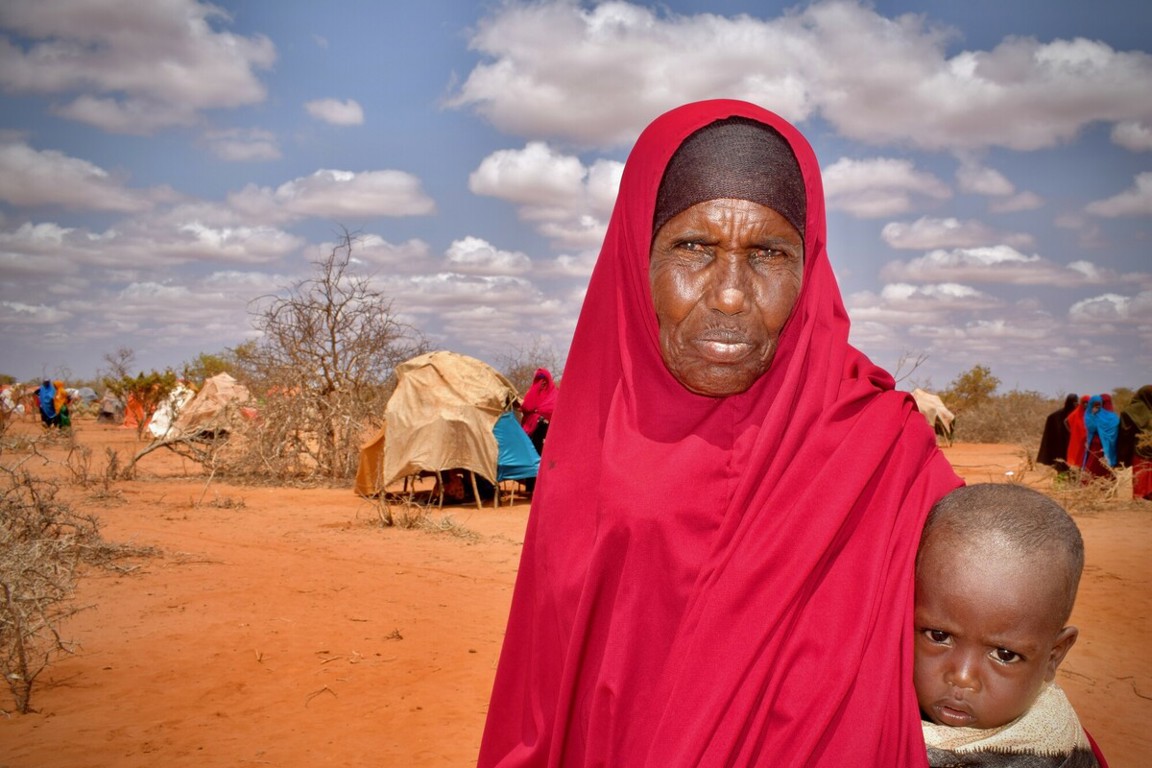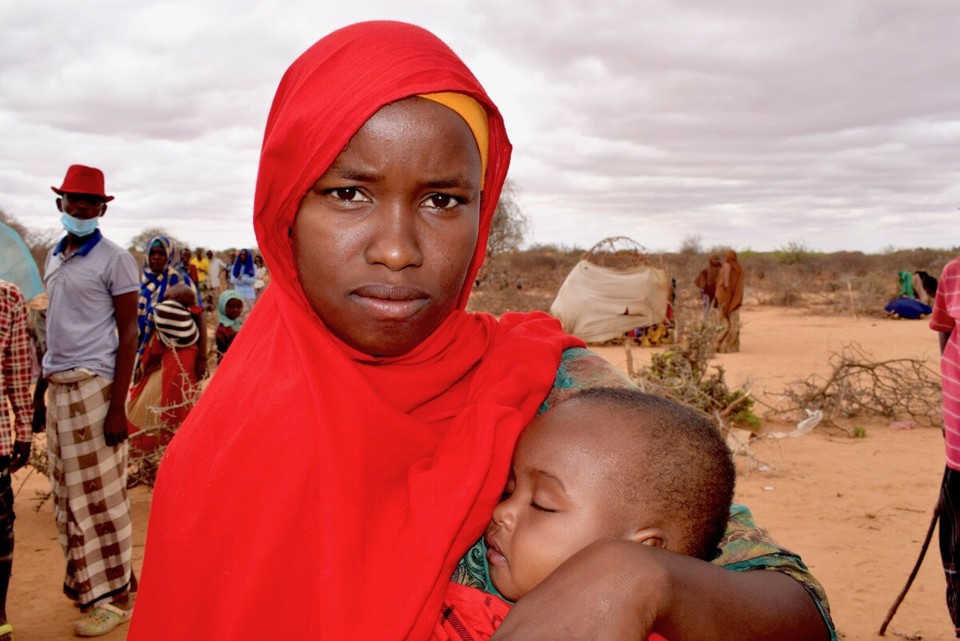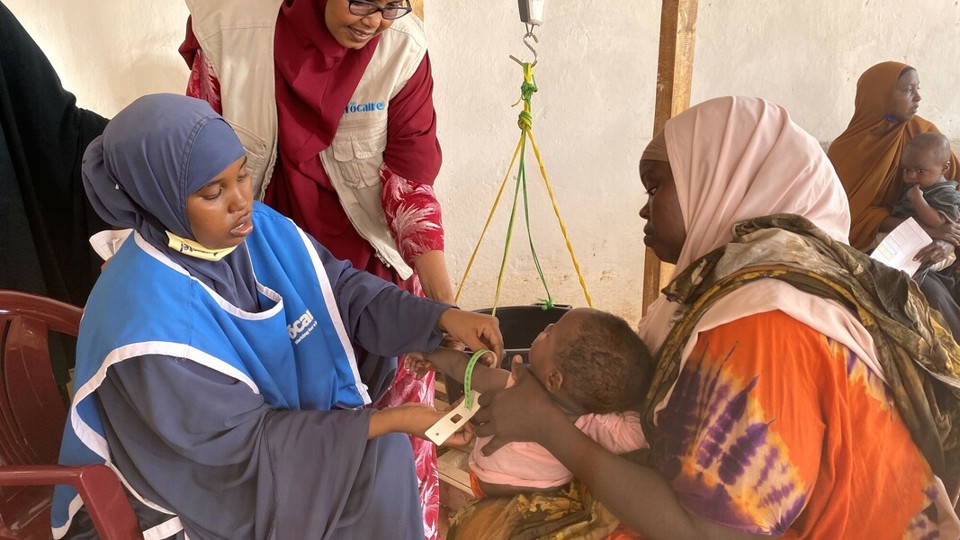Global Issues
Help Fight Hunger in Somalia
Drought, floods and conflict in Somalia have left millions of people in urgent need of humanitarian aid.

Village chief Abdyia and her 18-month-old great grandson, Mohammed, in an Internally Displaced Persons camp in Gedo district, southern Somalia. Abdyia, the first woman leader of her village, has given her land for the new camp which is accommodating more than 2,000 people who have had to leave their home in search of food and water due to drought. Photo: Miriam Donohue/Trócaire.

A child being checked for malnourishment at a Trócaire’s clinics. Trócaire is one of Caritas Australia’s partners. Photo: Miriam Donohue/Trócaire.
According to the World Food Programme:
7.1 million people need urgent humanitarian assistance with food
1.5 million children under 5 suffer from acute malnutrition
Hear from Caritas Australia's partner, Trócaire, about the food crisis in Somalia
Marian’s story
Marian's livelihood has been decimated after four years of drought caused by climate change.
“We had no food or water because of the drought,” she says. “Our crops failed and our goats died. Our livelihoods are gone. We were hungry and desperate.”
Like so many others, she left her home because she had no other options. She walked across Somalia with her eight-month-old daughter to get to Gedo in southern Somalia, hoping to find more food and water, or at least humanitarian aid.
“We walked for five days and nights with little food or water to get here,” she says. “We have been here for several weeks, maybe even a month, and still have not been properly registered with the authorities.”

Marian and her eight-month-old daughter queuing at the Trócaire health outreach centre at an Internally Displaced Persons camp in Gedo district, southern Somalia. Trócaire is one of Caritas Australia’s partners. Photo: Miriam Donohue: Trócaire.
“We had no food or water because of the drought. Our crops failed and our goats died. Our livelihoods are gone. We were hungry and desperate.”

You can help fight hunger in Somalia
Caritas Australia is working with our partner, Trócaire, to provide urgent food and health services in Geedo, where Trócaire has been working for over 30 years. With no sign of the drought ending, and hundreds of thousands of Internally Displaced People living in camps around the region, many communities will be heavily reliant on humanitarian aid for survival in coming months.
Our partner on the ground is working to support vulnerable communities in Somalia through:
EMERGENCY FOOD RATIONS
CLEAN WATER TO VULNERABLE COMMUNITIES
EDUCATION FOR VULNERABLE CHILDREN

Caritas Australia's partner Trócaire has run the health services in the Gedo region of Somalia for over 30 years, and currently provide lifesaving support to families facing malnutrition. Photo: Miriam Donohue/Trócaire.
Where does my donation go?
The funds you donate to this appeal go to Caritas Australia’s Emergency Response Fund and will be used to provide humanitarian assistance to communities affected by this crisis. Should circumstances prevent us from delivering aid to this emergency, or if excess funds remain after the crisis, donations will be directed to other emergencies where Caritas has humanitarian operations.












